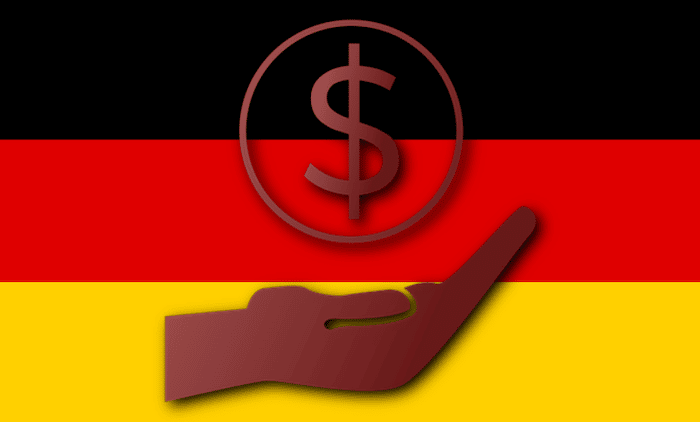ECB spares big banks – economy
[ad_1]
The European Central Bank has decided not to increase the so-called minimum reserve requirement. This means that credit institutions can continue to collect high central bank interest rates for their excess reserves in the future. An increase in the minimum reserve would have limited this possibility. In recent months there have been heated debates as to whether the central bank is subsidizing the major European banks through these interest payments. The head of the Austrian National Bank and ECB Council member Robert Holzmann had therefore called for a sharp increase in the minimum reserve requirement to five to ten percent. But there was no majority for it. The minimum reserve requirement remains one percent.
The decision of the ECB on minimum reserves is just one result of the revision of the entire monetary policy framework. Accordingly, the monetary authorities will continue to provide the banking sector with sufficient liquidity in the future. “The framework will ensure that in the future the implementation of our monetary policy remains effective, robust, flexible and efficient as our balance sheet normalizes,” ECB President Christine Lagarde said in Frankfurt on Wednesday. With its monetary policy, the ECB aims to bring the short-term market interest rate closer to the central bank’s deposit interest rate. This is four percent and has long been considered the key interest rate by the financial markets, while the general public often regards the main refinancing rate as “the key interest rate”. This is quoted at 4.5 percent. On September 18th, the gap between the deposit rate and the main refinancing rate is to be reduced from the current 0.5 to 0.15 percentage points.
It is also the deposit rate that has recently brought enormous profits to the banks. The reason: Banks have accumulated billions in surpluses in their accounts at the central bank – as a result of loose monetary policy. From 2015 onwards, the monetary authorities purchased government bonds and credited the purchase price to the commercial banks’ central bank accounts. There used to be no interest on this, keyword: negative interest, but since the central bank has increased the deposit interest rate in the fight against that inflation has increased to four percent, the banks are making risk-free profits.
This did not go unnoticed in society. The bank-critical association Finanzwende demanded in an open letter to ECB President Lagarde that central banks should not unconditionally enrich the banks with public money in the interests of a neutral monetary policy. The financial advantages for the banks also concerned members of the European Parliament. They criticized the fact that the banks would reap risk-free profits of 140 billion euros from the interest rate. Companies and bank customers often receive significantly less interest, for example on their current or fixed-term deposit accounts. “As a result, private households do not benefit from the ECB’s high interest rates, while they still have to bear the costs of higher loan interest rates and mortgages,” it said in an open letter.
But central bankers see it differently: “We raised interest rates to combat inflation, that was necessary. That’s why I completely disconnect from what happens to the banks as a result,” said Bundesbank President Joachim Nagel recently. The bank profits are essentially a side effect that stabilizes the sector, which cannot be an injustice to the banking supervisory authorities at the ECB.
By increasing the minimum reserve, the ECB could have slowed down the flow of money to the banking sector: financial institutions in the euro area are obliged to keep a certain amount in their account with their central bank. This minimum deposit is currently one percent of customer deposits. EU banks have no longer received any interest on this since September.
There is also another way to lower the interest income cap for banks: reducing the deposit interest rate. It is now becoming apparent that the ECB will probably lower interest rates again for the first time in June.
[ad_2]
Source link



